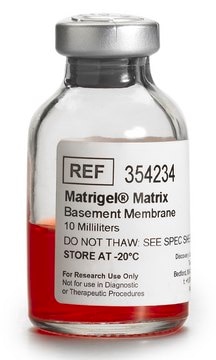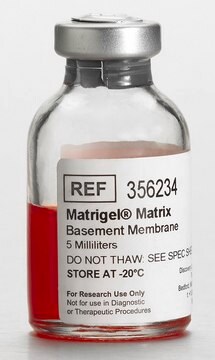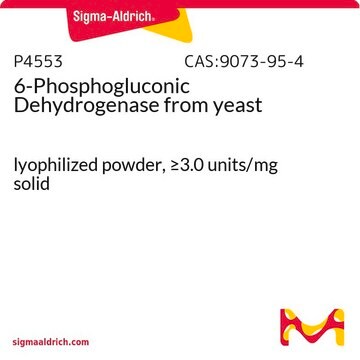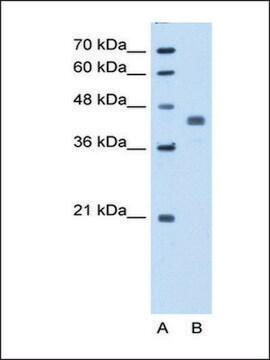AV48137
Anti-PDHA1 (AB2) antibody produced in rabbit
IgG fraction of antiserum
Synonym(e):
Anti-PDHA, Anti-PDHCE1A, Anti-PHE1A, Anti-Pyruvate dehydrogenase (lipoamide) α 1
About This Item
Empfohlene Produkte
Biologische Quelle
rabbit
Qualitätsniveau
Konjugat
unconjugated
Antikörperform
IgG fraction of antiserum
Antikörper-Produkttyp
primary antibodies
Klon
polyclonal
Form
buffered aqueous solution
Mol-Gew.
40 kDa
Speziesreaktivität
human, pig, rat, mouse, bovine, dog
Konzentration
0.5 mg - 1 mg/mL
Methode(n)
western blot: suitable
NCBI-Hinterlegungsnummer
UniProt-Hinterlegungsnummer
Versandbedingung
wet ice
Lagertemp.
−20°C
Posttranslationale Modifikation Target
unmodified
Angaben zum Gen
human ... PDHA1(5160)
Allgemeine Beschreibung
Rabbit Anti-PDHA1 antibody recognizes human, mouse, rat, canine, bovine, pig, chicken, and zebrafish PDHA1.
Immunogen
Anwendung
Biochem./physiol. Wirkung
Physikalische Form
Haftungsausschluss
Sie haben nicht das passende Produkt gefunden?
Probieren Sie unser Produkt-Auswahlhilfe. aus.
Lagerklassenschlüssel
10 - Combustible liquids
WGK
WGK 3
Flammpunkt (°F)
Not applicable
Flammpunkt (°C)
Not applicable
Hier finden Sie alle aktuellen Versionen:
Analysenzertifikate (COA)
Die passende Version wird nicht angezeigt?
Wenn Sie eine bestimmte Version benötigen, können Sie anhand der Lot- oder Chargennummer nach einem spezifischen Zertifikat suchen.
Besitzen Sie dieses Produkt bereits?
In der Dokumentenbibliothek finden Sie die Dokumentation zu den Produkten, die Sie kürzlich erworben haben.
Unser Team von Wissenschaftlern verfügt über Erfahrung in allen Forschungsbereichen einschließlich Life Science, Materialwissenschaften, chemischer Synthese, Chromatographie, Analytik und vielen mehr..
Setzen Sie sich mit dem technischen Dienst in Verbindung.




![PI3 kinase [p110a(E545K)/p85a] Active human recombinant, expressed in baculovirus infected insect cells, ≥55% (SDS-PAGE)](/deepweb/assets/sigmaaldrich/product/images/163/742/1cb58aa5-f4e9-4d30-8fb0-4b560e470a03/640/1cb58aa5-f4e9-4d30-8fb0-4b560e470a03.jpg)


